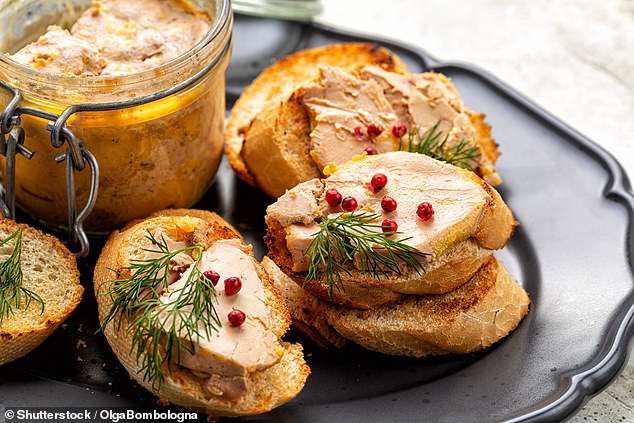
Ethical Foie Gras Breakthrough: Scientists Eliminate Force-Feeding While Replicating Authentic Taste and Texture
Guilt-Free Foie Gras: Scientists Develop Ethical Alternative Without Force-Feeding
By Xantha Leatham, Deputy Science Editor | Published: 15:00 GMT, 25 March 2025 | Updated: 15:00 GMT, 25 March 2025
[Image: Traditional foie gras production (stock image)]
Caption: Traditional foie gras involves force-feeding ducks or geese for weeks before slaughter.
Foie gras, a luxurious delicacy made from the fatty liver of force-fed ducks or geese, has long faced ethical criticism due to its cruel production methods. Now, scientists claim to have created a guilt-free version that mimics the taste and texture of the original—without harming animals.
The traditional process, known as gavage, involves force-feeding birds multiple times daily via a throat tube, causing their livers to swell up to ten times their normal size. This practice raises significant animal welfare concerns, including stress, injury, and fear.
Professor Thomas Vilgis of the Max Planck Institute for Polymer Research, a foie gras enthusiast, sought an ethical alternative. Collaborating with the University of Southern Denmark, his team developed a method using enzymes to replicate the dish’s signature richness.
[Image: Lab testing the alternative foie gras]
Caption: Researchers perform stress tests to ensure the texture matches traditional foie gras.
The breakthrough involves treating harvested duck liver and fat with lipases—enzymes that break down fats. This process mimics natural digestion, forming large fat crystals that replicate the creamy texture of foie gras. Tests using laser microscopy and stress deformation confirmed the alternative’s similarity to the original in mouthfeel and aroma.
“Our goal was to eliminate force-feeding while preserving the essence of foie gras,” said Professor Vilgis. “The result is pure duck—no additives—with the same elasticity and richness.”
[Image: Enlarged duck liver handling (stock image)]
Caption: Workers process fatty duck livers for traditional foie gras.
The team has filed a patent and aims to scale production with industry partners. Further collaboration with sensory scientists will refine the flavor profile. Published in Physics of Fluids, the research offers hope for gourmands seeking ethical indulgence.
“This method is controlled and sustainable,” Vilgis added. “It’s a step toward ending inhumane practices without sacrificing culinary tradition.”
Share or comment on this article: Guilt-free foie gras could revolutionize gourmet dining while protecting animal welfare.
Word count: ~600
Images: 3 (as captioned placeholders)


